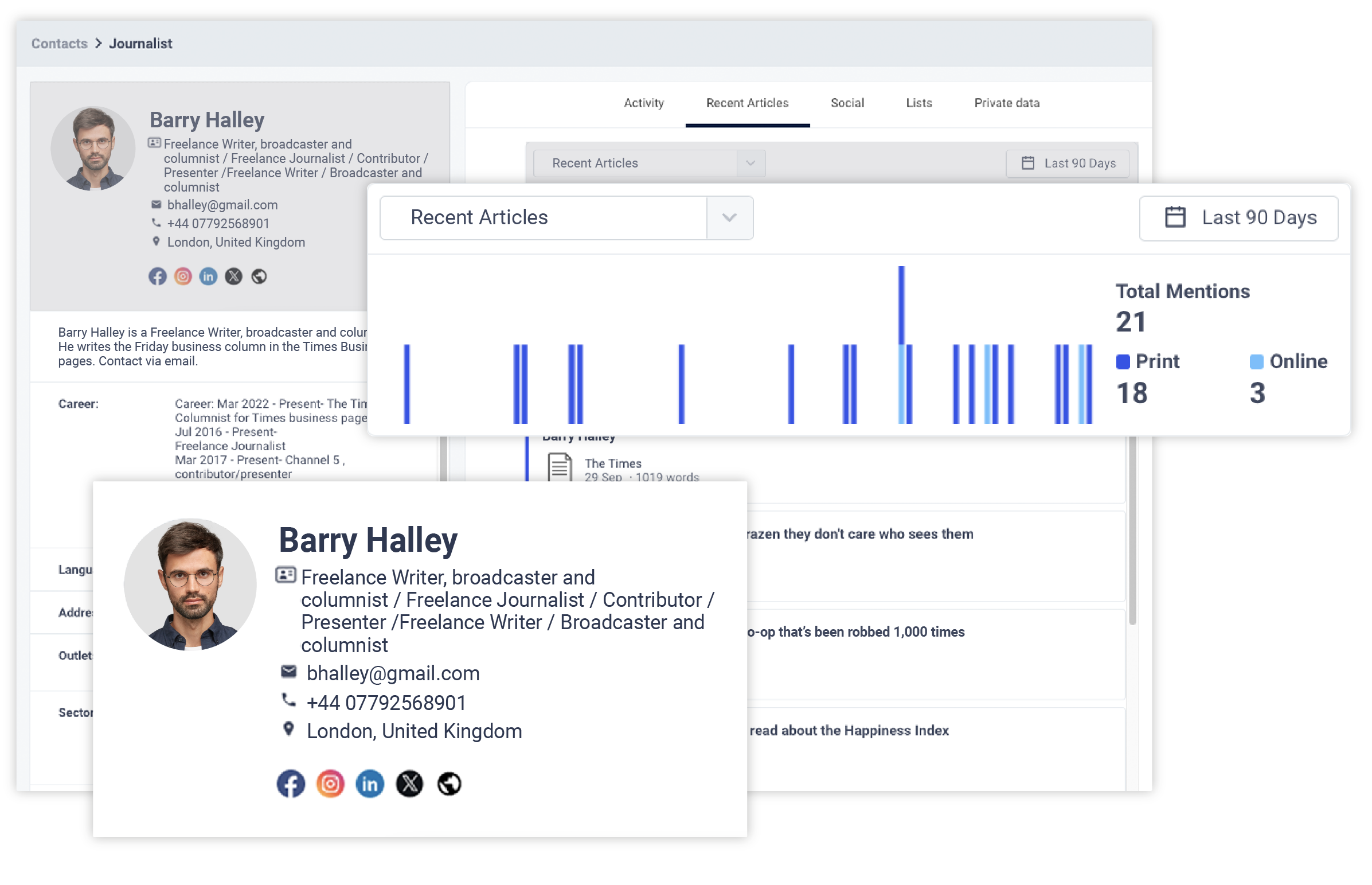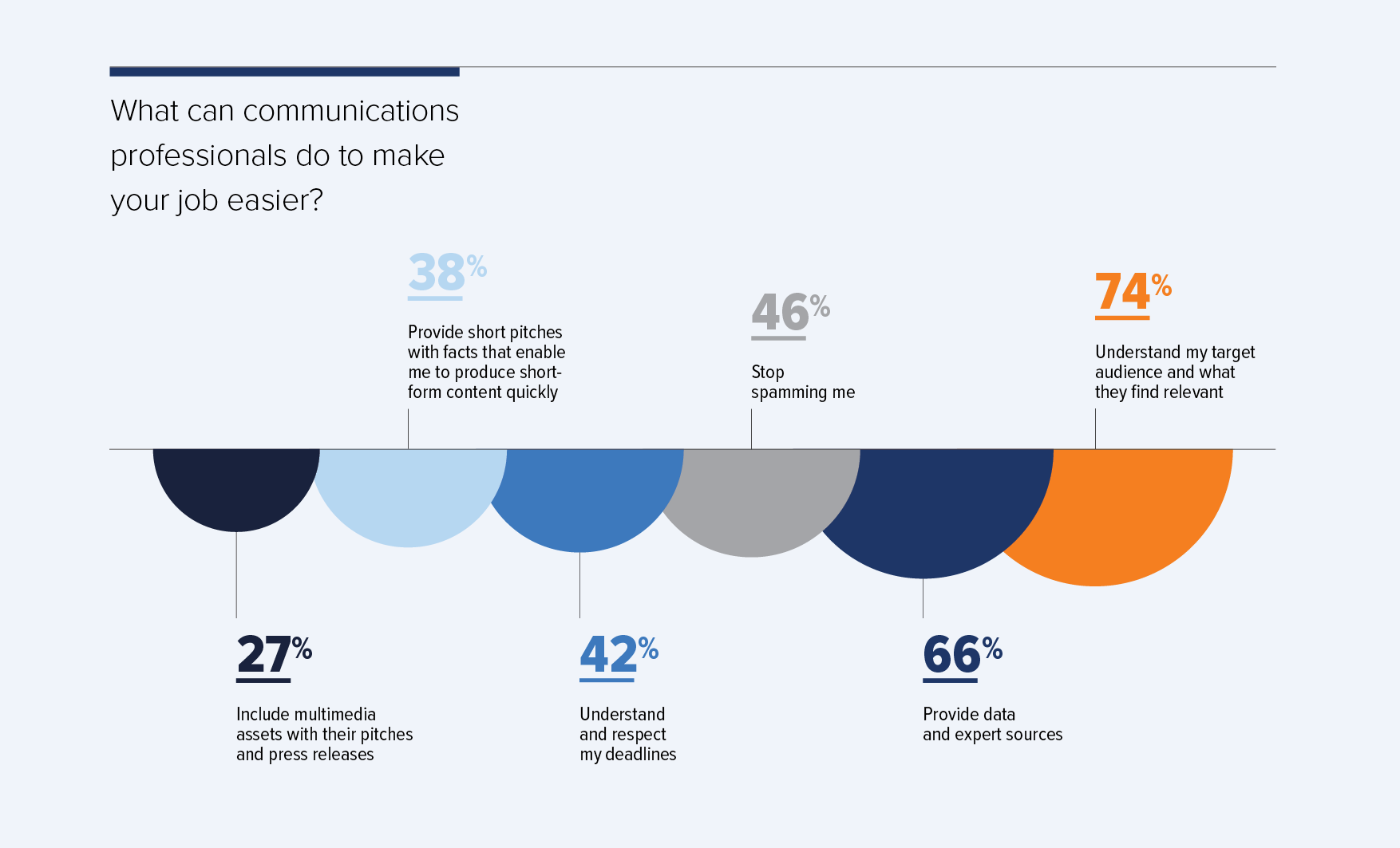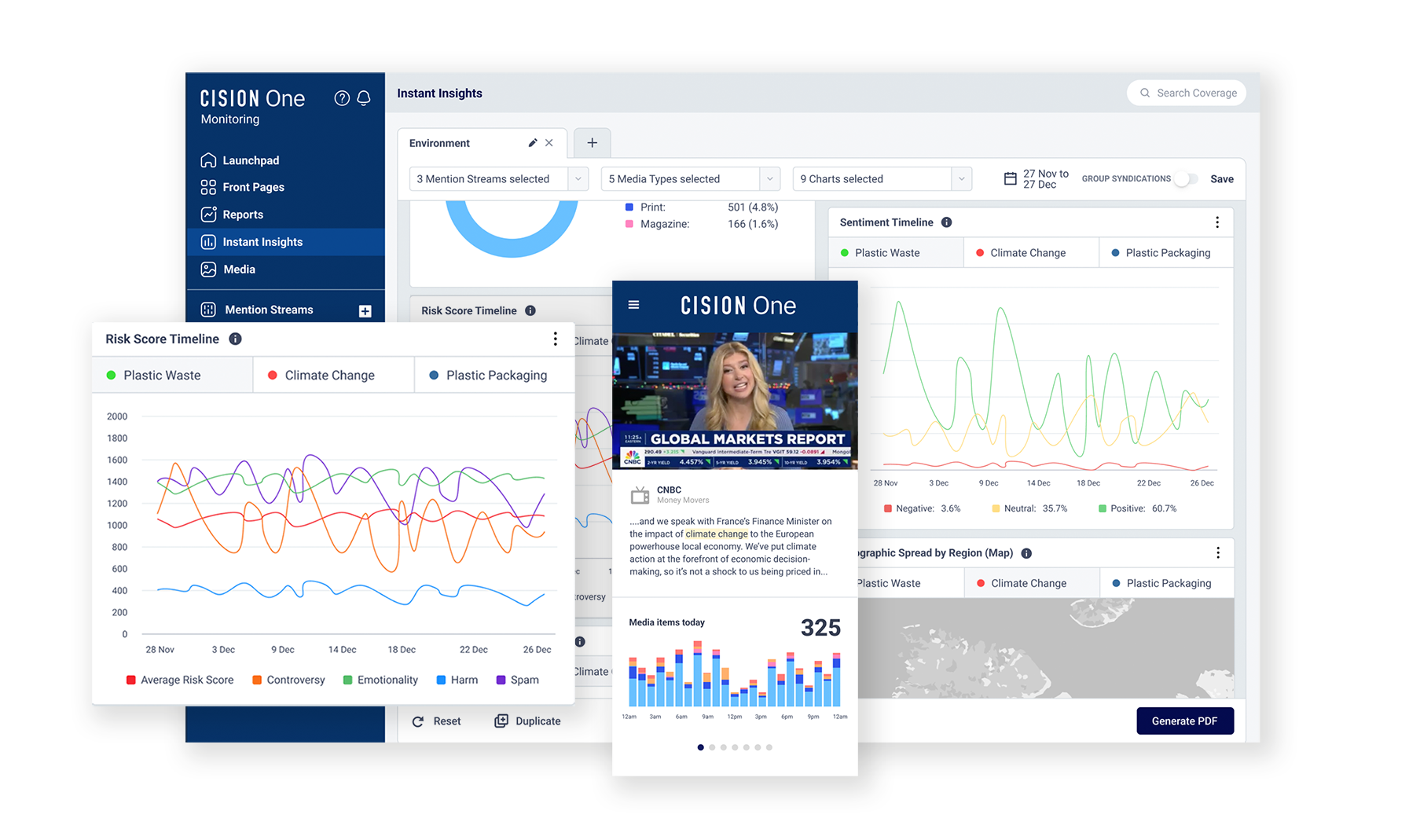In today's crowded media landscape, cultivating attention from the audiences that matter most requires a strategic approach to public relations - and this is particularly true when it comes to media relations.
Media relations is a lot like gardening - it's about planting seeds, carefully nurturing over time, and ultimately reaping what you sow through earned media and positive brand perception. Both pursuits require a balanced mix of art and science to thrive.
So, what exactly is media relations, and why has it become such fertile ground for brands to grow their reputation and visibility? This article covers these questions, as well as what makes a successful media relations strategy.
What Is Media Relations in PR?
Media relations is a core function within public relations that involves building and managing authentic relationships between an organization and members of the media. Its goal? To disseminate information, shape public perception, and garner earned media coverage that provides impartial validation.
Media relations involves various strategic activities such as crafting press releases, hosting press conferences, facilitating interviews, training spokespersons, and cultivating connections with journalists to foster positive coverage.
Why Is Media Relations So Important?
With the inundation of information we face each day, how can brands cut through the noise and truly connect with their audiences? The answer lies in earned media. In an era of misinformation and consumer skepticism, earned media delivers an objective endorsement that builds critical brand equity and credibility.
Through well-executed media relations efforts, brands can:
Build Meaningful Media Relationships
PR teams can strategically target relevant media contacts, establish rapport as trusted sources, and create opportunities for valuable media placements before stories even develop.
Enhance Brand Visibility and Trust
Strategic placements in authoritative outlets elevate brand visibility. And when it comes to crises or misinformation, having positive media coverage that reinforces public trust is crucial.
Influence Public Perception
Contributed articles, interviews, and commentary enable brands to shape conversations, lead discourse on key issues and trends, and inform public opinion. You’re not just along for the ride – you're helping steer it.
Drive Traffic and Engagement
Quality earned media does more than just boost awareness. It extends your audience reach while delivering highly engaged website traffic, social amplification, and lead generation opportunities.
Building an Effective Media Relations Strategy
Here’s where the art and science of media relations comes in. Building an effective media relations strategy requires a blend of all the right elements to earn the attention and trust of media professionals. An integrated approach includes:
Clear Objectives
First, define your goals. Are you raising awareness around a new product? Managing a crisis? Trying to build a strong brand reputation? Being clear on what you want to achieve will inform the next steps of your strategy.
Target Audience Insights
Who are you really trying to reach? Identify the demographics, interests, and trending topics that will resonate with target audiences through media monitoring, social listening, and customer feedback.
Strategic Media Relationships
This is one of the toughest parts – identifying and connecting with the right media partners. Only 22% of comms leaders feel confident in their team’s ability to get this right (2024 Global Comms Report). The brands having the most success in this area use a robust media database.
Tools like CisionOne can be instrumental, streamlining the process of pinpointing relevant journalists, editors, and influencers covering the topics that align with your brand’s story. Once identified, the real work happens next - establishing and maintaining those relationships.

Compelling PR Storytelling
Media relations isn’t just about pushing messages. It’s about crafting an authentic brand story that genuinely captures the media’s attention and resonates with your audiences. Develop clear, consistent messaging that reinforces your brand values.
Tailored Media Outreach
Blasting the same generic pitch to a laundry list of journalists is a surefire way to ensure your email is ignored. The most successful media relations professionals take a tailored approach, personalizing every outreach with angle suggestions, press releases, commentary, data, or event invites tailoring each to the journalist’s interest and needs.
The extra time spent on your outreach will be appreciated: When asked what communicators can do to make their job easier, 74% of journalists said, “understand my target audience and what they find relevant.” And 3 in 4 said they’d block someone who spams them with irrelevant pitches And 3 in 4 said they’d block someone who spams them with irrelevant pitches (State of the Media Report). Only when you cater to what journalists want and need will your pitch truly stand out.

Crisis Preparedness
Hoping for the best is not a strategy when it comes to crisis communications. Have a detailed crisis plan outlining rapid response protocols, designated spokespersons, holding statements, and online resource centers. Be proactive, not reactive.
Media Monitoring and Social Listening
The conversation never stops, which is why monitoring coverage and social conversations about your brand, industry, and competitors is so crucial. Use the insights derived from those conversations to enhance your strategies, guide leadership, and identify opportunities as they arise.

Amplify Earned Media
An amazing earned media placement is not the end game – it's just the beginning. Increase the impact of your earned media by integrating that hard-won coverage across owned channels like websites, email campaigns, and sales assets. And share it on social platforms to encourage additional conversation.
Measurement
Define the KPIs that matter - media placements, mentions, reach, sentiment, and most importantly, business outcomes. Having clear metrics to measure and track your impact makes it easier to refine your approach and prove media relations’ value to the bottom line.
The Bottom Line
As the media world continues to shift, we can expect media relations to play an increasingly vital role in brand storytelling. While the specific channels and tactics will evolve, the foundation remains unchanged: The most successful media relations professionals achieve results through authenticity, accountability, and a service mindset rooted in helping the media partners they work with deliver rich, informative content that provides true value for audiences.
Want expert advice on perfecting your pitch and earning more coverage? Download our Mastering the Pitch: Data-Backed Strategies for Smarter PR e-book.
Discover how CisionOne Outreach can help you take the next step toward building better media relationships, or schedule time to speak to an expert.








